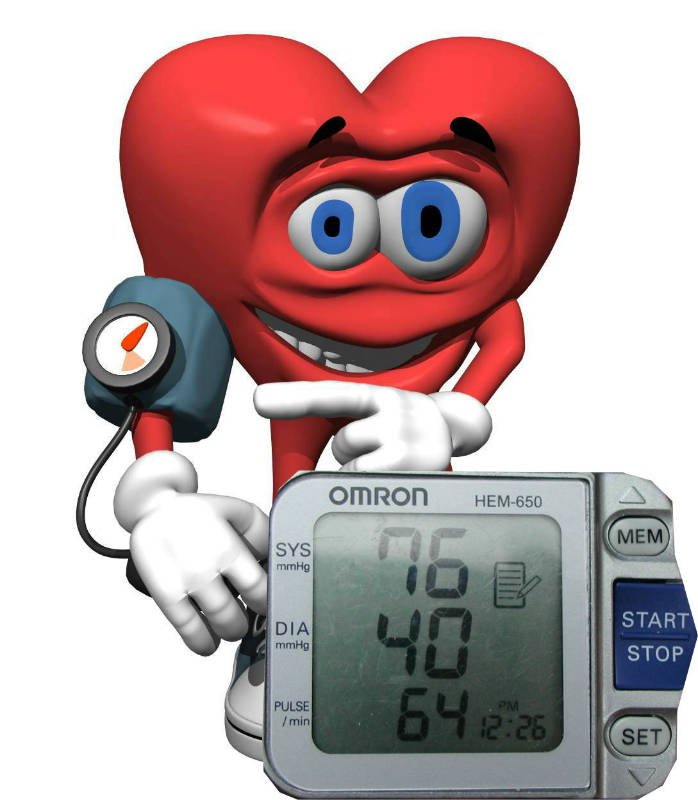To know if you have high or low blood pressure, you need to know what a healthy blood pressure level is. Optimal blood pressure is less than 120/80 mm Hg (systolic pressure is 120 AND diastolic pressure is less than 80). Within certain limits, the lower your blood pressure reading is, the better. There is no specific number at which day-to-day blood pressure is considered too low, as long as no symptoms of trouble are present.
If my blood pressure stays around 85/55, do I have a health problem?
As long as you are not experiencing symptoms of low blood pressure, there is no need for concern. Most doctors consider chronically low blood pressure dangerous only if it causes noticeable signs and symptoms, such as:
- Dizziness or lightheadedness
- Fainting (called syncope)
- Dehydration and unusual thirst
Dehydration can sometimes cause blood pressure to drop. However, dehydration does not automatically signal low blood pressure. Fever, vomiting, severe diarrhea, overuse of diuretics and strenuous exercise can all lead to dehydration, a potentially serious condition in which your body loses more water than you take in. Even mild dehydration (a loss of as little as 1 percent to 2 percent of body weight), can cause weakness, dizziness and fatigue. - Lack of concentration
- Blurred vision
- Nausea
- Cold, clammy, pale skin
- Rapid, shallow breathing
- Fatigue
- Depression

As long as no symptoms are present, low blood pressure is not a problem. However, if your blood pressure is normally higher or if you are experiencing any of the symptoms listed above, your low pressure may have an underlying cause.
Low blood pressure can occur with:
- Prolonged bed rest
- Pregnancy
During the first 24 weeks of pregnancy, it's common for blood pressure to drop. - Decreases in blood volume
A decrease in blood volume can also cause blood pressure to drop. A significant loss of blood from major trauma, dehydration or severe internal bleeding reduces blood volume, leading to a severe drop in blood pressure. - Certain medications
A number of drugs can cause low blood pressure, including diuretics and other drugs that treat hypertension; heart medications such as beta blockers; drugs for Parkinson's disease; tricyclic antidepressants; erectile dysfunction drugs, particularly in combination with nitroglycerine; narcotics and alcohol. Other prescription and over-the-counter drugs may cause low blood pressure when taken in combination with HBP medications. - Heart problems
Among the heart conditions that can lead to low blood pressure are an abnormally low heart rate (bradycardia), problems with heart valves, heart attack and heart failure. Your heart may not be able to circulate enough blood to meet your body's needs. - Endocrine problems
Such problems include complications with hormone-producing glands in the body's endocrine systems; specifically, an under-active thyroid (hypothyroidism), parathyroid disease, adrenal insufficiency (Addison's disease), low blood sugar and, in some cases, diabetes. - Severe infection (septic shock)
Septic shock can occur when bacteria leave the original site of an infection (most often in the lungs, abdomen or urinary tract) and enter the bloodstream. The bacteria then produce toxins that affect blood vessels, leading to a profound and life-threatening decline in blood pressure. - Allergic reaction (anaphylaxis)
Anaphylactic shock is a sometimes-fatal allergic reaction that can occur in people who are highly sensitive to drugs such as penicillin, to certain foods such as peanuts, or to bee or wasp stings. This type of shock is characterized by breathing problems, hives, itching, a swollen throat and a sudden, dramatic fall in blood pressure. - Neurally mediated hypotension
Unlike orthostatic hypotension, this disorder causes blood pressure to drop after standing for long periods, leading to symptoms such as dizziness, nausea and fainting. This condition primarily affects young people and occurs because of a miscommunication between the heart and the brain. - Nutritional deficiencies
A lack of the essential vitamins B-12 and folic acid can cause anemia, which in turn can lead to low blood pressure.
What if I notice a sudden decline in my blood pressure?
A single lower-than-normal reading is not cause for alarm if you are not experiencing any other symptoms or problems. However, a sudden drop in blood pressure --- even a change of just 20 mm Hg --- can cause dizziness or fainting. Sometimes a rapid decrease in blood pressure can indicate an underlying problem such as:
- Uncontrolled bleeding
- Severe infections
- Allergic reaction
- Postural (orthostatic) hypotensionThis occurs for some people when standing from a sitting or prone position. Their blood pressure drops rapidly, causing dizziness, lightheadedness, blurred vision and/or even fainting. Causes can include dehydration, prolonged bed rest, diabetes, heart problems and excessive heat. Medications like diuretics, beta-blockers, calcium channel blockers, ACE inhibitors, antipsychotics, antidepressants and drugs for Parkinson's disease can also cause this condition. In some cases, sitting for long periods of time with legs crossed or squatting can be the cause.
When to see your healthcare professional
If you experience any dizziness or lightheadedness, it's a good idea to consult with your healthcare provider. If you have gotten dehydrated, have low blood sugar or have spent too much time in the sun or a hot tub, it is more important to recognize how quickly your blood pressure drops than how low it drops. Keep a record of your symptoms and your activities at the time your symptoms occurred.
Source heart.org
DUC TIN SURGICAL CLINIC
Tin tức liên quan

Performance diagnostique de l’interféron gamma dans l’identification de l’origine tuberculeuse des pleurésies exsudatives

A Mixed Phenotype of Airway Wall Thickening and Emphysema Is Associated with Dyspnea and Hospitalization for Chronic Obstructive Pulmonary Disease.

Radiological Approach to Asthma and COPD-The Role of Computed Tomography.

Significant annual cost savings found with UrgoStart in UK and Germany

Thrombolex announces 510(k) clearance of Bashir catheter systems for thromboembolic disorders
Phone: (028) 3981 2678
Mobile: 0903 839 878 - 0909 384 389








